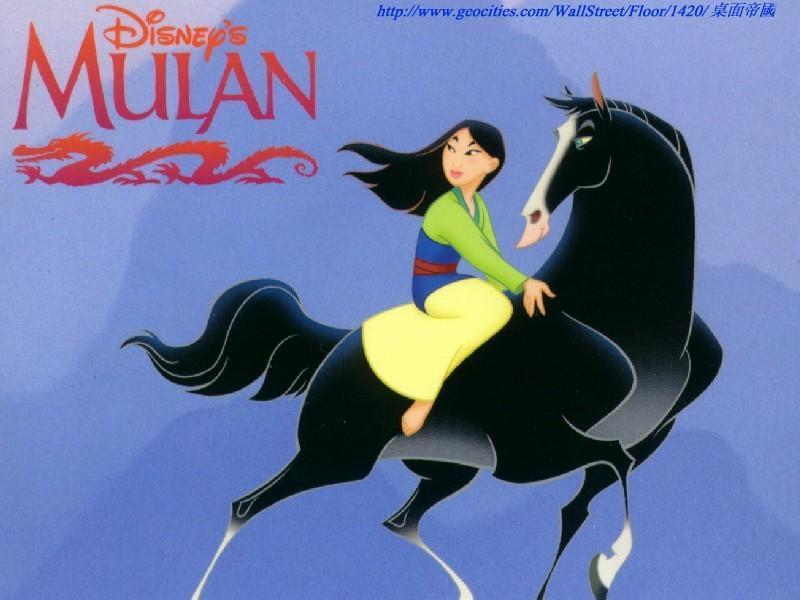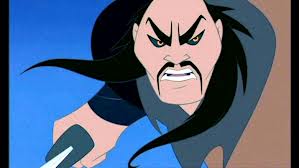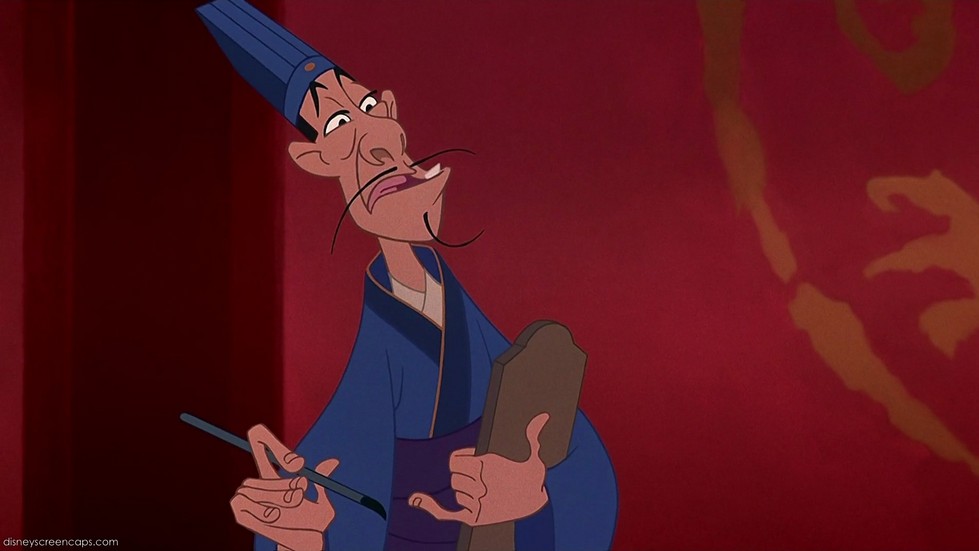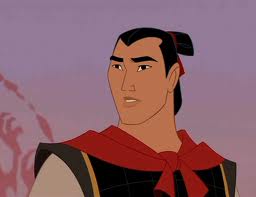Disney and Religion: A Look at Non-Western Cultures

Non-Christian Religion
Mulan is the story of a young Chinese girl who is ready to meet the matchmaker to bring honor to her family. When the Huns invade China, one man from every family is called to serve in the Imperial Army. Mulan's father, who is still wounded from the last war decides to fight for his country and the honor of his family though it is clear that he will not survive. Mulan gets rejected by the matchmaker and is told that she will never bring her family honor. Feeling lost Mulan decides to prove that she is worth something and steals away to take her father's place in the army by disguising herself as a man. She prays to her family's ancestors for protection and luck before leaving in her father's armor with her family's horse. The ancestors awake and decide to send Mushu, a little dishonored dragon to aid Mulan in her quest. Weeks later, Mulan and the other troopers have survived the training camp and are on the way north to stop the huns. After being spotted and pursued by the enemies, an impass situation in the mountains forces Mulan to come up with an idea.Risking everything Mulan defeats the Huns in the mountains but becomes wounded and her real identity is revealed. Shang, the commander, spares her life and they leave her in the mountain. However, Mulan realizes the Huns are alive and she goes into China where she saves the emperor and the country.
Mulan is filled with references towards religion and spirituality especially many of the traditions, practices, and values of East Asian religions. A reoccurring religious theme that is continuously referenced in the film involves recurring prayer to and mention of, the Fa family's ancestors. In the beginning of the film Mulan, her father, her mother, and her grandmother are all either directly praying or refer to praying to their ancestors on occasions. In the film the ancestors are seen coming to life as ghost life figures who discuss how to give Mulan guidance when she leaves for the army. Spirituality and religion are also depicted through the characters Yao and Chien-Po who practice religious meditation and chanting for relaxation. This film reflects the nature of the Chinese religion and culture by making many references to and emphasizing "upholding the family honor". There are also illustrations of the principle of filial piety, the respect towards your parents, elders, and ancestors and compassion that are crucial to Confucianism and Buddhism. The principle of compassion is shown in the scene where Shang, the commanding officer, spares Mulan's life when it is revealed that she is a woman. Prior to this scene, she saved his life and he overrides what he is legally obliged to do which is kill her. The religious values that are presented of East Asian religions are depicted positively, however, there is American culture individualism displayed in the film with Mulan going to war for father, but also to be her self and prove to herself her ability and value.
Racism
Is Mulan portraying the racial stereotypes that seem to indulge the American perception of Chinese culture? The most stereotyped characters in the film are Chi Fu, the council member and Shan Yu, the villain. Chi Fu has very distinct features in which many criticize that they look like a racist caricature. He is one of the characters that has one of the most pronounced and heavy accents in the film. He is portrayed as less manly than any of the other men and is often used for comedic effect. Shan Yu has small yellow eyes, claw like nails and is dehumanized with animal like features. The emperor is often found saying wise words or phases to the people around him which often sound as if he is quoting sayings from fortune cookies. Mulan, however, is physically portrayed to look much more westernized, her skin is much paler and her eyes are rounder whereas the other characters appear to have smaller eyes most are shown to have big cheeks and jaw bones. Captain Li Shang has a square jaw, portrayed as attractive and, along with Mulan, do not have an Asian accent.
Sexism
One of the biggest portrayals of sexism in the film derives from the song "Honor to us all" in which Mulan is preparing ti meet the matchmaker. The lyrics say "A girl can bring her family great honor in one way, by striking a good match and this could be your day. Men want girls with good taste, calm, obedient who work fast paced. With good breeding and a tiny waist..." This displays that Mulan's worth is based upon how suitable she is for marrying a man and a domestic life. There are also many times when "girl" or "woman" is used as an insult. For example when Mulan's identity is revealed after she is wounded Chi Fu says "I knew there was something wrong with you! A woman!" and he later says "She's a woman, she'll never be worth anything!" when Shan Yu is finally defeated at the emperor's palace. When Mulan enters the Imperial City to warn Shang and the army that the Huns are still alive and in city she is ignored and told that she does not belong there. When no one listens to her Mushu reminds her "you're a girl again". All these examples indicate that women are worth less than men and do not have the value that men have. Critics also argue that despite the fact Mulan becomes a soldier and saves her country, she had to become a man to do it. However, that is not entirely true, Mulan did impersonate a soldier and disguise herself as a man to fight with the army, she even derives a plan to stop the Huns when they are in the mountains after an attack disguised as a man. But, in the end the final fight with Shan Yu, Mulan saves her country as a woman. Her true identity is revealed and she is not dressed as a soldier, rather as a woman which represents female empowerment because Mulan found her place by using her courage to save the emperor even when "all the odds seemed against her".

Shan Yu

Chi Fu

Li Shang
Pictures
Video